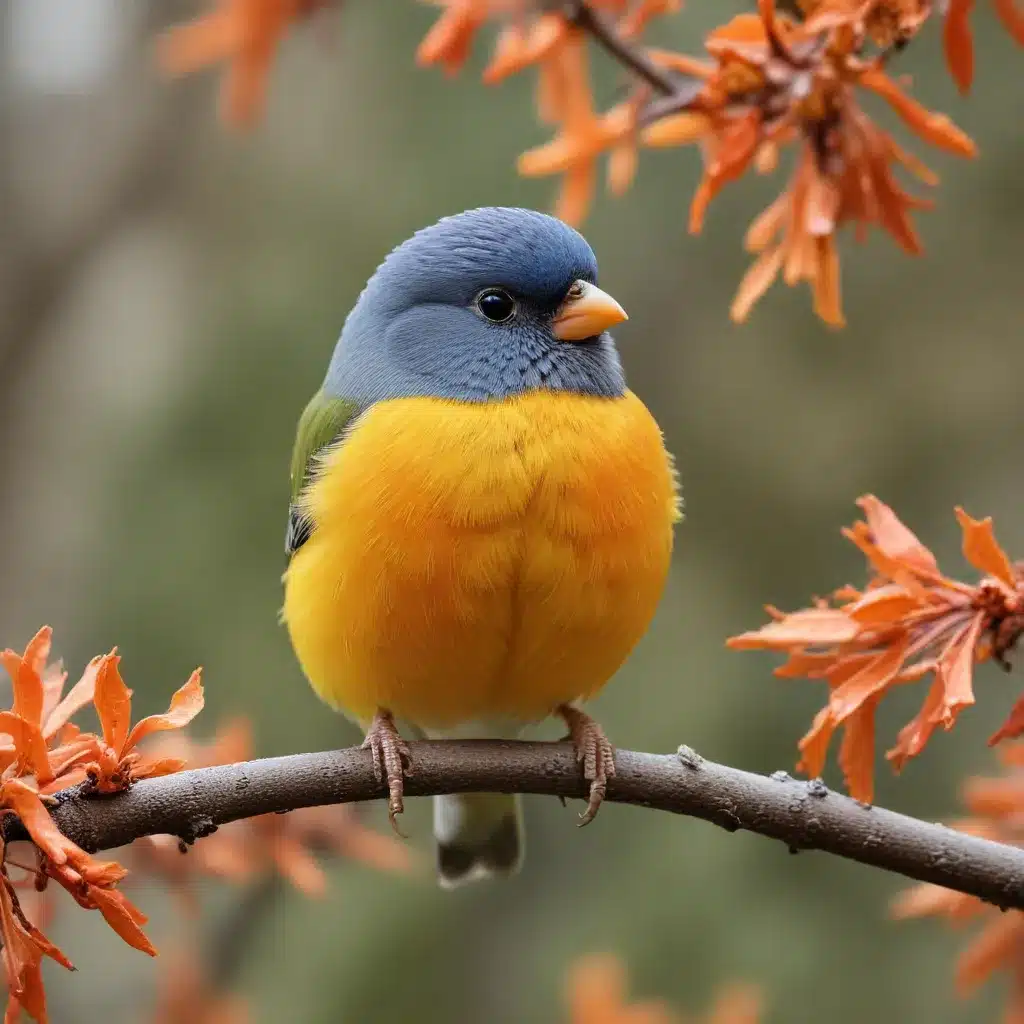
As an experienced avian caretaker, I’ve seen how the changing seasons can dramatically impact the health, behavior, and overall well-being of our feathered friends. Just as we humans adjust our wardrobes, diets, and routines to accommodate the shifting weather, our beloved companion birds require similar seasonal adjustments to thrive.
Avian Biology and Behavior
Seasonal Physiological Changes
Birds’ bodies undergo remarkable transformations in response to environmental cues. As daylight hours increase in spring, hormonal shifts can trigger breeding behaviors, feather molts, and heightened aggression or territoriality. Conversely, shorter autumn days often lead to a decrease in activity levels and appetite as birds prepare for winter.
For example, African penguins at Mika Birds Farm experience dramatic seasonal changes. In the fall and winter months, the flock becomes increasingly focused on nesting and eating, with hormonal changes causing their annual molt – where they lose all their feathers at once and grow a brand-new waterproof set. To support this natural process, our keepers provide more fish during hand-feedings and offer opportunities for the penguins to hunt live fish in their outdoor pool.
Migratory Patterns
Many bird species are driven by innate instincts to migrate long distances, following seasonal food sources and favorable weather conditions. While resident birds may remain in the same general area year-round, migratory species like geese and hummingbirds will make epic journeys, sometimes traveling thousands of miles. Understanding and accommodating these natural patterns is crucial for their health and well-being.
Adaptations to Climate Variations
From the frigid Arctic to the sweltering tropics, birds have evolved ingenious ways to thrive in diverse climates. Some species, like grizzly bears, enter a state of torpor in winter – their bodies slowing down to conserve energy. Others, such as our Mika Birds Farm mountain lions, actually increase their appetite and activity levels when temperatures drop, needing extra calories to stay warm.
Keepers carefully monitor how each species at our farm responds to seasonal changes, adjusting factors like lighting, diet, and enrichment to ensure a comfortable environment. By respecting the natural rhythms of our avian ambassadors, we can help them seamlessly transition through the seasons.
Bird Housing and Environment
Temperature and Humidity Considerations
Maintaining the proper temperature and humidity levels in a bird’s habitat is critical, as these factors can significantly impact their health and comfort. In the winter, you may need to provide supplemental heat, while summer’s heat and humidity could require cooling systems or misters. Carefully monitor thermometers and hygrometers to ensure optimal conditions.
Lighting and Photoperiod Requirements
The amount of daylight a bird receives plays a vital role in regulating their biological clock and triggering important seasonal behaviors. Many species require a specific number of light hours per day, so adjust lighting accordingly as the seasons change. For example, our African penguins need 12 hours of uninterrupted darkness during the winter to support their natural molting and breeding cycles.
Enrichment and Stimulation
Providing engaging enrichment is essential year-round, but the types of activities may need to shift with the seasons. In warmer months, offer more opportunities for bathing, foraging, and outdoor exploration. As the weather cools, focus on indoor activities like puzzle feeders, shredding toys, and cozy nesting areas. Keeping birds mentally and physically stimulated helps them better cope with seasonal stressors.
Avian Nutrition and Dietary Needs
Seasonal Food Preferences
Just as our own appetites change with the seasons, birds may exhibit shifting food preferences throughout the year. In spring and summer, they may crave more fresh, hydrating produce. As temperatures drop, they may seek out higher-calorie, protein-rich options to maintain body condition. Carefully observe your bird’s eating habits and adjust their diet accordingly.
Hydration and Water Quality
Ensuring your bird has access to clean, fresh water is vital year-round, but it becomes especially important during hot, dry periods. Invest in sturdy, spill-proof water dishes and consider offering multiple sources around the habitat. Monitor water quality and change it frequently to prevent bacterial growth or algae buildup.
Supplementation and Foraging Opportunities
Certain nutrients may become more or less bioavailable depending on the season, so evaluate your bird’s diet and consider targeted supplements. Additionally, providing foraging opportunities, such as hiding treats in enrichment toys or scattering seeds in the substrate, can help satisfy their natural instincts and keep them engaged.
Health and Welfare Concerns
Illness and Disease Risks
Seasonal changes can impact a bird’s susceptibility to various illnesses and diseases. For example, the stress of molting or increased hormone levels may temporarily weaken their immune system. Carefully monitor for any signs of illness, and work closely with an avian veterinarian to ensure prompt treatment.
Feather Care and Molt
Feather care is essential year-round, but the molting process can be particularly challenging for birds. Provide ample opportunities for bathing and preening, and consider offering specialized supplements to support feather health. Carefully observe your bird during this time and be patient, as the molt can be an energy-intensive process.
Stress Management Strategies
The shifting seasons can be a source of stress for many birds. Establish consistent routines, minimize environmental disruptions, and offer calming activities like soft music or misting baths. Pay close attention to your bird’s body language and behavioral cues, and be prepared to adjust your approach as needed.
By understanding the unique seasonal needs of our avian companions and making thoughtful adjustments to their care, we can help them thrive through the changing seasons. At Mika Birds Farm, our team of dedicated experts is committed to providing the highest level of care for our feathered friends, ensuring their health, happiness, and well-being year-round. For more information or to plan your visit, please explore our website at mikabirdsfarm.com.


